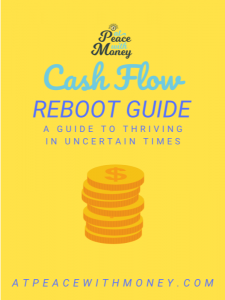How to Get the Best Financial Advice: Build a Financial Advice Team

Money is a team sport. Although we have an unfortunate notion in our culture that talking about money is taboo, we need to do our best to break it. By collaborating with others and building a team of people we can trust to talk to about our money, we can start getting the help and information we need.
There are many different people who can make up a money team. Money confidants, such as close friends and coaches who you can confess your financial feelings to, and receive good advice from, are one good example. Your bank can be considered a part of your money team, especially because good customer service is an important aspect of banking. Similarly, your tax prep person, financial planner, accountant or bookkeeper, and even the people you get financial advice from, are all important parts of your money team.
These “team members” fall into three different categories: people in your life, trusted professionals, and advice sources. Let’s take a look at each category and figure out how you can find good team members.
People in Your Life
Anyone in your life who you’re able to talk to about money falls here. Most importantly, these people are able to provide you with space to air your feelings. In some cases, they may also offer good advice. For example, if you’re friends with an accountant or a retirement planner, you’ve hit the jackpot! If not, good friends that you can open up to are still very helpful. The more we air our feelings about money, the more we’re able to think clearly and pursue practical solutions
If you don’t have anyone in your life that you’d consider a financial confidant, don’t worry. Run through your list of connections and identify some people with whom you might feel safe sharing thoughts, feelings, and ideas about money. Then, try approaching them with the idea of sharing these things. Many people are happy to have someone to talk to about this, so it’s worth a shot. For more tips, you can read my article on “Why You Need a Money Buddy.”
Trusted Professionals
Here’s where your team members might get more diverse. Financial coaches, bookkeepers, tax preparers, and financial planners all fall into this category. Not everyone will need to refer to every one of these professionals, and perhaps not on a regular basis. However, working with professionals in all of these areas can do wonders for your financial life.
Like a money buddy, coaches are there for you to confide in, but are also trained to help you find specific solutions. Good bookkeepers are able to deliver valuable financial insights about your business and follow appropriate record-keeping laws. If you run a business, you might find you appreciate that someone else does your record keeping, while you get to do whatever it is you really enjoy. Here’s an article about how to find a good bookkeeper.
Tax preparers are great to consult with during tax season. The most helpful tax preparers help you get a better idea of what you need to file, what you can write off, and if you qualify for any credits. Depending on your assets, you may or may not need to have a financial planner you can regularly work with. If you want to do some complex planning, it might be good to consider adding a financial planner to your money team.
Advice Sources
The last category is made up of public figures and advising entities. Your bank is probably the most important member of your money team here. If you don’t have a bank that provides good customer service, or if you’re getting charged bank fees, switch, and fast. Being able to sit down with a bank employee when you have questions is an important aspect of building your money team. Bank fees are just annoying, but also totally avoidable! Read my articles about “How to Avoid Bank Fees” and “How I Broke Up With Wells Fargo (And You Can Too!).”
Earlier in this article, I mentioned that a financial planner can be a good reference, but another option is to simply meet with a planner at a firm as needed. I had one client who, when planning for retirement, made one appointment at a firm and got all her questions answered. No commitment needed, and a good source of advice.
The last member of this category is public advice figures. There are quite a few out there, so finding the ones who give the best advice for you might require some sifting. These articles contain some of my thoughts on finding good financial advice. Also, here are a couple of my personal favorite resources.
Building a money team takes some work, but when you have a network of people, professionals, and resources who can help you solve your money problems, you’ll be glad you did it! If you enjoyed this article, you might like my free e-Book, 9 Secrets of Financial Self Care. Click here or below to get your copy!










 valuable at a time like this. Because Jennifer is able to acknowledge her feelings and tend to them, she has more mental space available when it’s time to get to work.
valuable at a time like this. Because Jennifer is able to acknowledge her feelings and tend to them, she has more mental space available when it’s time to get to work.



 File Your Taxes On-Time!
File Your Taxes On-Time!


 So, what do you gain when your records are well-kept? Errors are corrected, which can potentially save you money right out the gate. You incur no late fees on taxes because everything is organized and filed on time. You can use your reliable records to glean insights into when and how money is made in your business. You have less stress about finances because you know everything is being tracked correctly. And finally, you have more time to do the things in your business that you actually enjoy. Should you be spending your time doing bookkeeping when you’re actually really fabulous at making art, building cabinets, providing live entertainment, etc?
So, what do you gain when your records are well-kept? Errors are corrected, which can potentially save you money right out the gate. You incur no late fees on taxes because everything is organized and filed on time. You can use your reliable records to glean insights into when and how money is made in your business. You have less stress about finances because you know everything is being tracked correctly. And finally, you have more time to do the things in your business that you actually enjoy. Should you be spending your time doing bookkeeping when you’re actually really fabulous at making art, building cabinets, providing live entertainment, etc?


 Earlier in this article, I mentioned that a financial planner can be a good reference, but another option is to simply meet with a planner at a firm as needed. I had one client who, when planning for retirement, made one appointment at a firm and got all her questions answered. No commitment needed, and a good source of advice.
Earlier in this article, I mentioned that a financial planner can be a good reference, but another option is to simply meet with a planner at a firm as needed. I had one client who, when planning for retirement, made one appointment at a firm and got all her questions answered. No commitment needed, and a good source of advice.